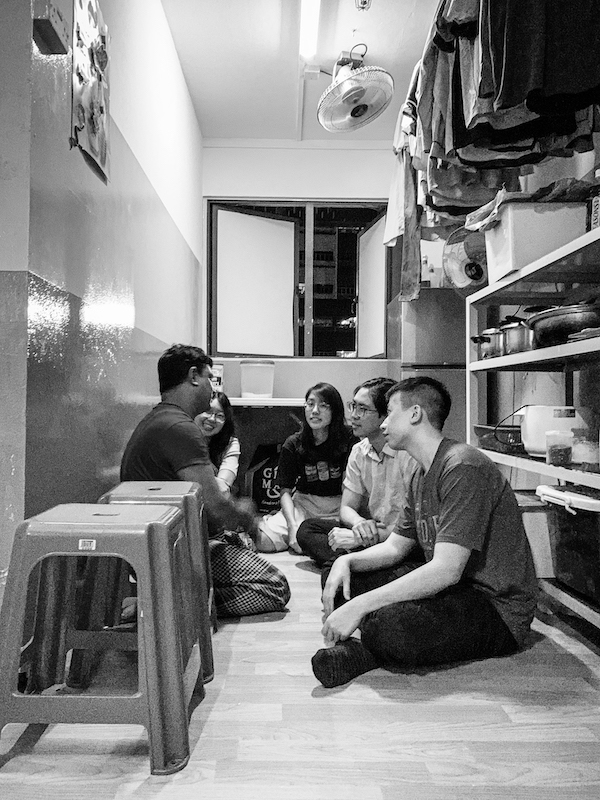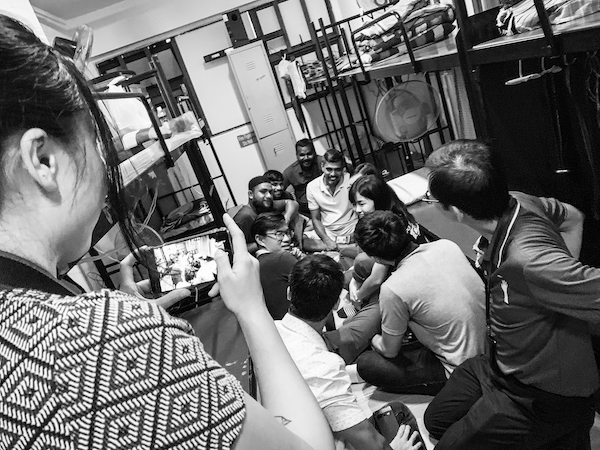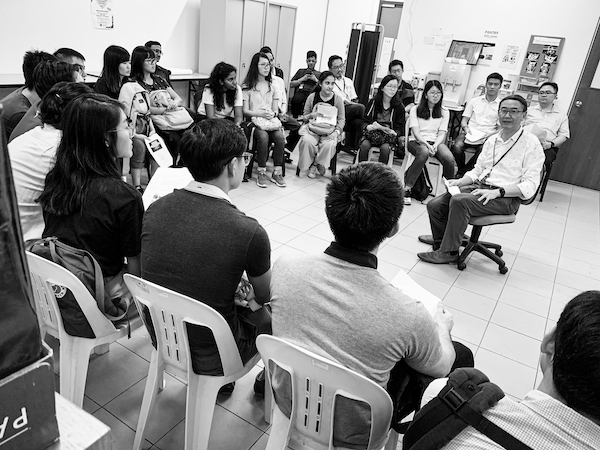The invisible community of migrant workers caught the country's attention last year when outbreaks in the dormitories led to thousands of COVID-19 cases locally. During this period of crisis in the dormitories, thousands of healthcare professionals were deployed to the dormitories to care for the infected workers, with many sharing subsequently that they were shocked at the spartan living conditions that many as doctors, nurses and other healthcare professionals never knew about.
The importance of education
Moving forward, I believe we should include migrant health as a specific topic into the routine curriculum and education of all medical students. Beyond academic exploration, it would also be incredibly useful for all students to be involved in the actual care of the migrant workforce in order to appreciate its complexities and to be more familiar for future care encounters.
There are three reasons in my mind why our three medical schools should do this. Firstly, the migrant population is a large one. There are 1.2 million work pass holders in Singapore,1 of which over 300,000 work in the Construction, Marine and Process sectors2 and some 200,000 reside in dormitories of various forms. It cannot be that a doctor schooled locally has little or no exposure to one-fifth of the population, and one that has very different clinical needs and cultural experiences with the formal healthcare system. As I write this, I am reminded of an anecdote from 2020 – a young doctor posted to the dormitories was consulted by a migrant worker for three consecutive days with a variety of vague symptoms. She treated him symptomatically and reassured the patient that there was nothing wrong. On the fourth day, he committed suicide. Manifestations of mental health deterioration can be very different across cultures.
Secondly, the migrant worker population, particularly the dormitory-residing groups, are and will remain at higher risk than the general population for infectious disease outbreaks and we as a health system need to remain vigilant. The "watch towers" are manned by us frontline doctors and it behoves us to learn to recognise early signals of outbreaks. The same skills are also relevant in caring for any densely-populated residential areas, including university students residing in hostels, uniformed personnel in barracks, and inmates.
Humanity in medicine
"He devoted his entire life not only to medicine but more to humanity. Prof Seah was one who acted as he preached. I was at his clinic in Singapore General Hospital (SGH) when he was summoned from the ward, where one of his patients needed immediate attention. He returned after 20 to 25 minutes and apologised profusely.
I was then President. The patient he was summoned to see was someone in the C class ward."
– Former Singapore President Mr Wee Kim Wee, 4th SGH Lecture, 1996
Finally, we pride ourselves for the practice of our craft without regard for the patients' station in life. I first heard this account of Prof Seah Cheng Siang (1922-1990), former head of SGH Medical Unit 3, when I was a young medical student and I know my colleagues in academia relate this to our medical students even today.
The humanity we exhort our students and apprentices to see in every patient – ample opportunities abound to experience this while caring for vulnerable populations like migrant workers. Such an opportunity, as author Joseph Campbell describes, "fosters the flowering of our humanity in this contemporary life".
Prior to COVID-19, HealthServe hosted medical students from the NUS Yong Loo Lin School of Medicine for a three-day immersion programme. As seen in the photos, students were exposed to the biopsychosocial aspects of care for migrant workers, visited and engaged workers in their place of residence in a typical Purpose-Built Dormitory and explored the vibrant Geylang area on foot to appreciate the cultural melting-pot of locals and non-residents.


Medical students interviewing migrant workers as part of their immersion programme with HealthServe

Reflection and discussions with Dr Goh Wei Leong, co-founder of HealthServe